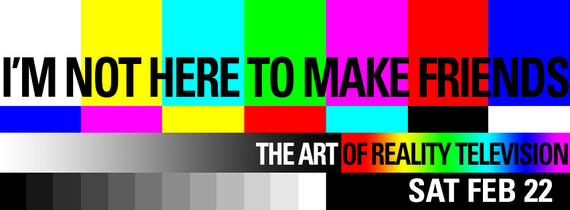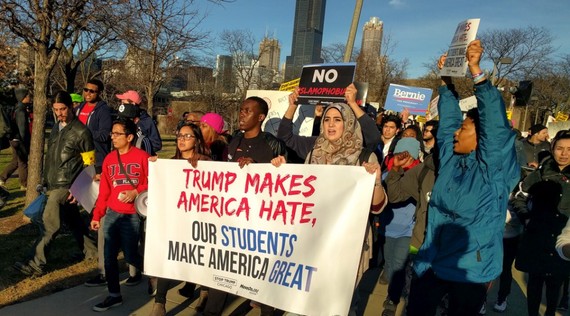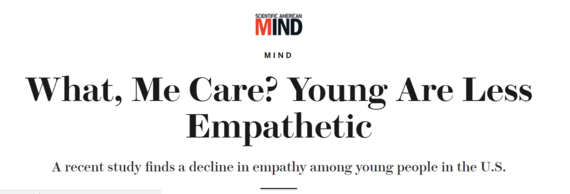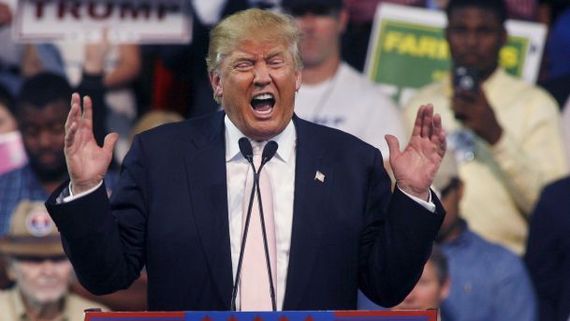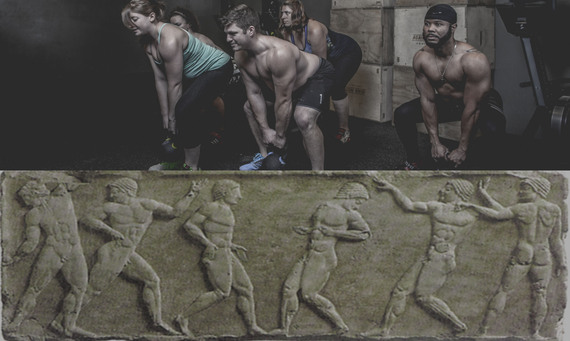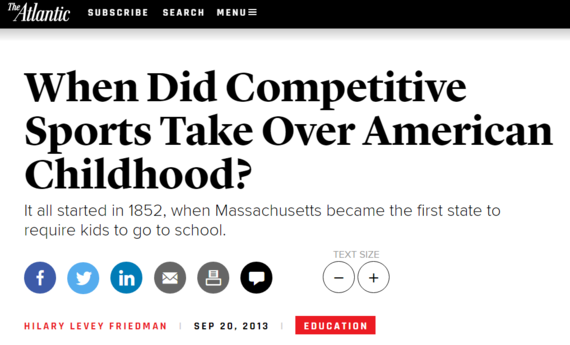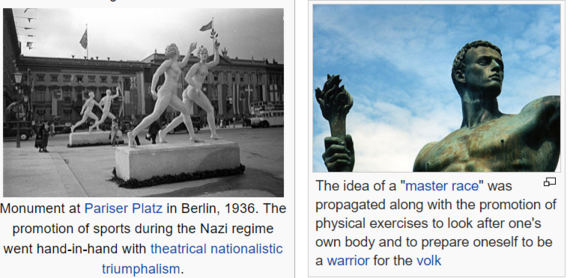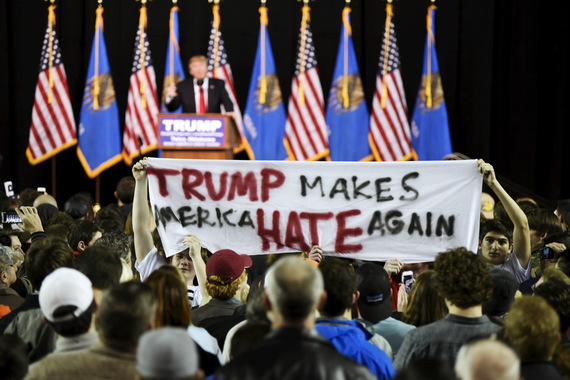I just had a surprising and disappointing experience on an airplane. Upon immediate, in-the-moment reflection, I realized that I have no good excuse to be surprised.
A cultural movement: The reality-competition genre took over television over a decade ago, and barely an episode of any given reality TV show goes by without several contestants repeating this mantra. It's become integrated into the American psyche: I'm not here for you, is the implication; I'm here for what I can get from you.
I arrived at Reagan National Airport an hour and a half before my flight this morning. I do try to be prepared, particularly because I tend to be forgetful and have made my own travels more complicated than they should be due to this forgetfulness and occasional confusion. Since my early 30s, "brain fog," sometimes in a way that feels like the early onset of dementia, has made life a little cumbersome. But you know what? After having regularly lost my car every single time I part it since my late teens--when I was diagnosed with Lyme disease--I've learned to live with it and to laugh about it whenever I can. Likewise with the 50 percent deafness in my left ear from Meniere's disease, an inner ear disorder that causes progressive hearing loss, vertigo and imbalance. I never thought that this would be my life, and I felt sorry for myself for years before I knew what was causing all these strange occurrences--but knowledge is empowering, and understanding causes these things has taken the pressure off.
I don't expect anyone to sympathize, not really -- except that I guess I do in the sense that still, despite a tremendous cultural shift toward apathy and overt hostility toward one another, expect basic civility until I am reminded that it doesn't exist anymore. The United States of America is no longer a place of compassion; it's a place of competition. It's a place where half the country regards kindness and decency as unbearable political correctness. Where the potential next president became even more popular when he mocked a physically handicapped man. When I was in high school, adults did not intervene when my peer called me faggot, punched me, flicked my ears, kicked me in the shins every day--but they sure as hell would have removed any student from class for cruel impressions of a handicapped person. This is the America of Trump, and its Spartan revival has been long in the making.
At the airport, a traveling companion told me that the American Airlines flight attendant had announced that anyone with a rolling carryon bag would need to check it before the flight, as the aircraft was small and didn't have enough overhead storage to accommodate all passengers. She told me to check my bag at the desk. So another companion and I stood in line behind others who were checking their bags, and when it was my turn I offered my boarding pass to the attendant. "What's your seat number?" she asked, and I told her. "I don't need your boarding pass," she said. "I've got your seat number." She checked off 19F on her computer monitor as I watched, and then she labeled my bag and told me to put it behind her, which I did. She told the young woman who was with me to go to another line. This seemed odd since we were on the same flight, but I proceeded onto the airplane.
When the plane was full, I was approached by a male flight attendant who asked what seat I am supposed to be in. I told him: 19F. He said no, that's not right because no one had checked in for the flight. I told him the woman at the counter told me she didn't need to see my boarding pass and told me to board the plane. He asked for my boarding pass. I showed it to him. He told me, raising his voice, that I had stood in the wrong line; I was heading to New Orleans, and American Airlines was boarding planes destined for that city and Nashville at the same time through the same gate. I was on the New Orleans flight, but checked into the Nashville flight. I'm sorry, I said. I didn't realize. I hadn't heard the announcement--which I didn't say for various reasons: I didn't really need to announce my health issues with him, he clearly did not want to hear it, and I'm fairly certain that had I said I hadn't heard the announcement, he would have only ramped up his rage toward me, assuming that I had been confessing to negligence.
"Let me see your ID," he said. I showed him my ID. "You were in the wrong line," he said again. He stared angrily for a few seconds and then stomped away.
I was a little dazzled by the harsh encounter, but airlines are hardly hubs of customer service as they were when I began flying 20 years ago. So fine.
Someone pointed out that if I had been admitted through the wrong line, I must have checked my luggage onto the wrong airplane. I asked a female flight attendant if that was the case. She called over the man who had been gruff with me and he asked, "What's the problem." I asked whether he thought my luggage had probably been checked onto the wrong plane. He said, "You didn't check onto this airplane. You were in the WRONG line. YOU checked your bag onto the WRONG plane, and I don't know HOW you are going to get it back." The capitalized words were, in no uncertain terms, yelled at me. "OK," said. "Thanks." He walked away.
The woman next to me--who is sitting next to me as I write this--said "I don't think he handled that right, the way he spoke to you." I told her that I suppose nothing can be done about a bag checked onto the wrong plane and that it was my fault for having mistakenly done so, but I thanked her for her kindness. It's...unusual today, to say the least.
"college students' self-reported empathy has declined since 1980, with an especially steep drop in the past 10 years. To make matters worse, during this same period students' self-reported narcissism has reached new heights, according to research..."
I make mistakes and I own up to it when I do. I admit that I am sometimes so embarrassed that I am tempted to make excuses (and I do make excuses when events beyond my control are part of the experience), but I can't think of any such mindless mistakes for which I haven't claimed responsibility. I don't see any reason not to do so.
I'm not a particularly high-maintenance person, either: I live in a glorified studio apartment with a sunroom converted into a bedroom. I own a beat up 1997 Honda Civic, and I get around by foot whenever possible. I don't require or even want luxury, and I don't feel I deserve and don't want special treatment.
This is to say I am not difficult to satisfy--it's not to say I am without vices or my own obnoxious tendencies. I can be a critic; having lived through a difficult adolescence in which I was verbally assaulted every day in school and frequently physically abused by peers because of my sexuality, with no adult intervention, I was astonished to have survived beyond high school, and having done so, I swore that I wouldn't be quiet when I witness injustices--hence my activism on behalf of people with Lyme disease and other chronic illnesses, my outspokenness about Donald Trump, hypocrisy among the gay community, and other issues that prove I have no shortage of opinions.
Yet, I try to be respectful to other people. And when I can't be respectful, I am at least civil. People can lose my respect, but so far no one has pushed me to the limit of barking at strangers, calling people names, or picking up a pitchfork and a torch and joining the villagers in chasing someone out of town.
Which is weird because, somehow--and I feel pangs of guilt for what I am about to say--it seems almost un-American, or at least naively nostalgic, to value civil interactions over combative ones.
The United States of America is not a civil place anymore. Half of the country supports Donald Trump, who is antagonistic when he is on his best behavior, and at other times is unkind, nasty, even cruel. I don't like him, I make no bones about it, but even removed from political considerations, Trump's explosive rage, adolescent insults, love of money and view of respectful behavior as weakness typify latent American values and, having become fashionable only after my formative years, disturb me.
Donald Trump's recent record shows that he is incapable of giving a speech or sleepless tweeting without demeaning people. The national reaction to his having invoked Rosie O'Donnell's name at the end of the first presidential debate is foolish because all of us, both supporters and opponents, should expect this from him. His persistent hostility toward a former Miss Universe should come as no surprise to anyone: This behavior is part of his enterprise, and it's part of the reason the new Spartan Americans love him as they love and fear God. Whether totally mad or simply reckless, he does not question his dominance and authority, and that is the kind of leader for which a militaristic society hungers. Donald Trump would not exist as we know him if he did not humiliate easy targets at every opportunity, even when he has to shoehorn opportunities into a presidential debate.
Trump can't be blamed for this shift in our culture from a welcoming refuge for social and political outcasts to a tribally militaristic nation. It began long ago. I remember distinctly when the television show "The Weakest Link" first aired; I thought in my youth that the host's cutting, often vicious remarks were hilarious in their novelty. My mother told me that her behavior was portentous: people soon would be emulating her. That happened. I would bet money that most people under age 40 can't fathom genres of comedy that are not mean spirited and cynical. Comedians nowadays, with a few exceptions such as Ellen DeGeneres, mostly use one version or another of insult comedy.
Following the events of September 11, the nation I believed I knew had revealed what to me was a dark and terrifying undercurrent. Within a day or two of the attacks, every car in Northern Virginia was branded with an American flag, and suddenly it was both governmentally and socially sanctioned to hate people simply for being who they were. Having grown up gay and graduating high school in 1996, the tide had just begun to tide toward tolerance for LGBT people around 2000. I had gone through the worst and had begun to see the light of people behaving humanely toward people who are different. I learned in school about our shameful history of American slavery, and about the horrors of the Holocaust and eons of socially promoted antisemitism. I had never really seen these things, or felt the thick atmosphere of broad scale, collective, practically mandated hatred--until all of us average American people were expected to hate Muslim American people.
At the time, colleagues and I had a favorite kebab place where we'd bought lunch regularly for years. Within a week of September 11, that restaurant was serving its food in Styrofoam containers with American flags and "We Love America" printed on them. At any other time, that would have made me feel as if these people had come to our country because of the opportunity it represented; at this time, it was clear that this message was really saying "please don't hate us or hurt us." It was a message of fear because suddenly, within days, the people of the United States of America's hackles had been raised and the façade of civility had fallen away. We no longer welcomed the tired and poor yearning to breathe free, and all it took was a few airplanes.
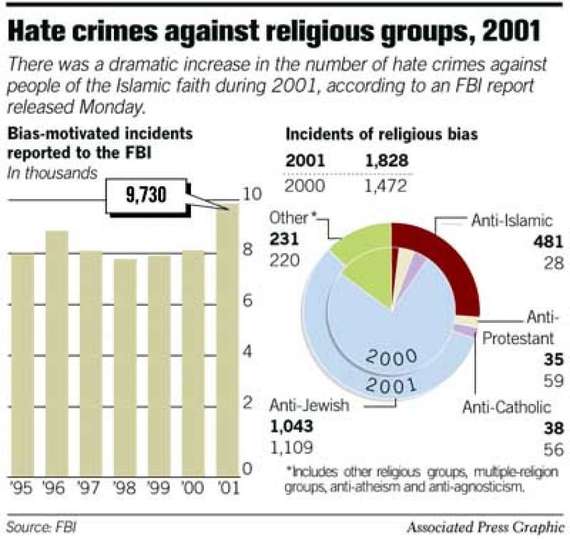
From a November 2002 issue of the San Francisco Gate. In 2002, seeing "hate crimes" in a headline was alarming. Today, it is commonplace.
Terrorism exists to promote fear and to corrupt cultures. We all give the terrorists, whomever they are, exactly what they want. First, as expected, total panic and chaos. Then irrepressible nationalism--the sentiment of "us" versus "enemy." The fear corrodes and degrades everything: People behave insanely. New domestic terrorists sent Anthrax and other biological weapons by mail. Then came the daily mass shootings, and then the bombings at marathons and in urban parks. Us versus the enemy. Terrorism infiltrates the psyche, and its work manifests even in the way strangers interact with one another. Why be kind or understanding or even decent to a stranger? What has this person done to prove she is not a threat to you?
Our country has been transforming for decades into a new America. We can thank not only terrorists for it, but how our leaders choose to respond to terrorism. Other countries have seen the United States morph from a beacon of religious and economic freedom and opportunity to a military police state, a public-square shooting range, and a Hollywood production that has set an eerily fascist-looking stage for an incoherent madman whose support grows despite constant self-contradictions because of his mastery of inciting fear and hatred among the panicked masses.
It's Spartan America. Young people, men and women alike, from suburbs to cities participate in militaristic training--CrossFit, bootcamps, military obstacle courses. We think about it as fitness, but for what--so we can sit at computer terminals and stare mindlessly into our smartphones? Our national ideal is the ideal of the ancient Greeks, physically, aggressively, militaristically.
Not until after World War II did these competitive endeavors begin to be dominated by children from the middle and upper-middle classes. The forces that have led to increasing inequality in education, the workplace, and other spheres have come to the world of play.
We admire these young people for their strength today; we admire them for their ideally mechanistic bodies as the ancient Greeks seemed to have, just through unclothed InstaGram displays instead of in marble. We don't have Mother Theresa or Princess Diana figures anymore; we have Donald Trump, Milo Yiannopoulos, and young male actors all of whom 30 years ago would have looked like freakish bodybuilders. Without anyone noticing, all our popular movies have become the popular nationalistic movies of prewar Germany--good versus evil productions in which Captain America, Agent Salt and others vanquish the almost impossibly evil Foreign Enemy. People once watched comedies for pratfalls and clever double entendres; now they watch to laugh at fat people in humiliating compromising situations. Seth Rogen comedies exist to make us laugh; they also exist to say, "Don't be this guy." That's why they feature Zac Efron's and his torso so segmented by abdominals and pectorals and obliques it could almost belong to the belly of a pale insect.
From the earliest developmental years, life for most Americans now is about competition: team sports by age three, foreign languages by five. Regimented schoolwork, regimented standardized tests, limited or no creativity. Community service is required for college admission and so it is performed as a competitive activity--without a thought to serving communities. Strong people advance. Smart people advance. Beautiful people advance. We don't think consciously when these cultural ideals transform, but societies adopt fitness ideals, crueler means of treating others, harsher language during times of war, while promoting nationalistic supremacy.
When I was in elementary school, a fair amount of time in class was spent correcting behaviors and teaching students how to empathize with other students. This sort of thing now is a waste of time, isn't it? How could a standardized test test for compassion?
Last spring, someone close to me discovered he needed emergency triple-bypass surgery; his widowmaker artery was 100 percent blocked. Before his surgery, he told me something--and I knew it was a lesson he needed me to know. He said, "David, this world isn't the same world I grew up in. We didn't have smart people in my family." I laughed. I thought the lesson had turned out to be a joke. It wasn't. "We had nice people, kind people. That doesn't seem to matter in this world, does it?"
Does it?
It does matter to me, but that doesn't mean I can deny the astonishing transformation of realities I've witnessed since my optimistic early adulthood. People really are not kind anymore, not unless they are told to be kind by a superior at work. And that's rare today, too--I've had the same maddening conversations with Comcast and Verizon that seemingly everyone else has, and airlines, which used to set the gold standard for customer service, now exist for two purposes: to get you where you need to go, and to make you uncomfortable along the way. Well, OK, three--the most important purpose being to make money...the only true and lasting American value.
I can't remember what I was watching, but I saw someone on television recently who said that "everyone makes mistakes. But people only fail when they refuse to correct their mistakes." It was, obviously, an old television show because people don't think or act this way anymore. Altruism, compassion, understanding, giving people the benefit of the doubt--these aren't American values anymore.
If someone inconveniences you by making a mistake, as I did with checking my luggage, why not make them feel worse about it? Why not humiliate them in front of a plane full of passengers who did not make the mistakes? I'm not humiliated; as I said, I have come to learn that it's really not that hard to take responsibility for, and accept the consequences of, absent-minded mistakes that I make more commonly than I wish I did. But as the initial shock subsided, I realized I am not surprised by the flight attendant's reaction. This is America, after all. This is Trump's America: competitive greatness doesn't involve decency, respect or civility. All it demands is winning, at any cost.

